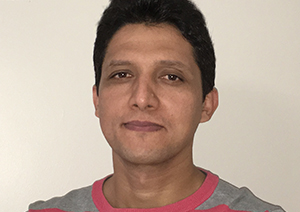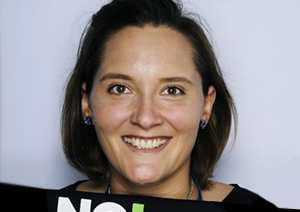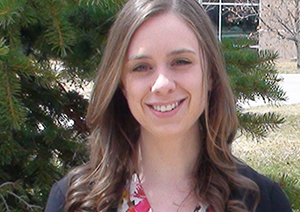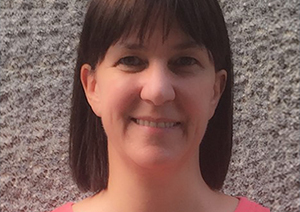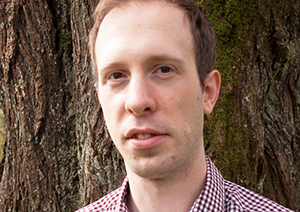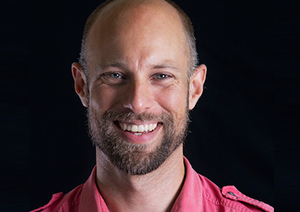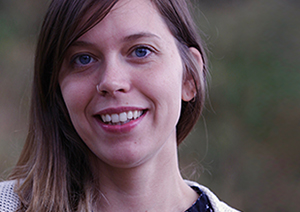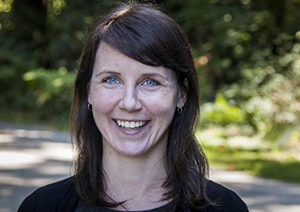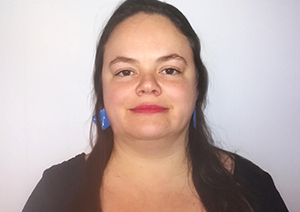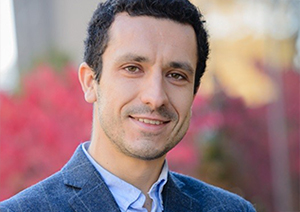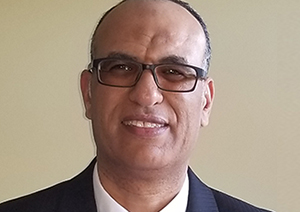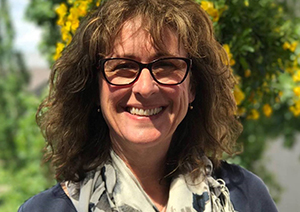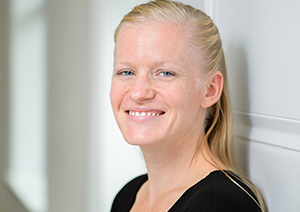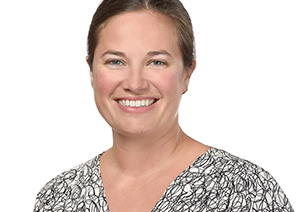Development of case-mix classification systems for patients with behavioural, mental health and addiction needs in post-acute and residential long-term care settings
Name: Luke Turcotte
Host Partner Organization: Canadian Institute for Health Information (CIHI)
Location (city, province): Toronto, Ontario
Academic Institution: University of Waterloo
PhD or Post-doctoral Fellowship: Post-doctoral Fellowship
About You & Your Fellowship Program of Work:
I completed my PhD in the School of Public Health and Health Systems at the University of Waterloo. My primary research interests are in the development and application of health information systems to support clinical decision-making and improve quality of care for individuals in post-care and residential long-term care settings. The Canadian Institute for Health Information (CIHI) is seeking to expand their repertoire of analytical tools to support the measurement of health systems, including the development and refinement of case-mix classification systems used to allocate funding and compare patient populations across health care settings, regions, and time periods. In partnership with CIHI, my health system impact goal for this Health System Impact Fellowship is to explore alternative configurations of the interRAI RUG-III case-mix system to better account for the unique needs of frail and clinically complex older adults with behavioural needs, mental health conditions, and addictions in post-acute and residential long-term care settings. The next generation case-mix systems that will be produced through this Health System Impact Fellowship may serve as the foundation for future prospective payment systems that allocate health care resources in a manner that is commensurate with patient need.
|
Implementing Standardized Electronic Health Records to Create Learning Healthcare Systems and Improve Patient Care in Canada
Name: Stephanie Aboueid
Host Partner Organization: Deloitte
Location (City, Province): Toronto, ON
Academic Institution: University of Waterloo
PhD or Post-doctoral Fellowship: PhD
About You & Your Fellowship Program of Work:
Stephanie is a registered dietitian and holds a MSc in Health Systems from the Telfer School of Management. She completed internships in various primary and tertiary health care settings as well as at the Public Health Agency of Canada in the Innovation Strategy Division. Her MSc work focused on obesity management in various types of multidisciplinary primary care settings and was funded by an Ontario Graduate Scholarship and the School of Management Research Grant. Throughout her academic studies, Stephanie assumed various roles in student associations and the school council, was involved in a business start-up, volunteered at Ecology Ottawa, and is currently a student member of the Canadian Health Human Resources Research Network. Stephanie’s main research interests include chronic disease prevention, multidisciplinary primary care settings, interprofessional collaboration, eHealth and nutrition care.
Stephanie is excited to begin a one-year fellowship at Deloitte, one of Canada’s leading professional service firms and a global leader in health transformation and health analytics delivery. Stephanie will work within the artificial intelligence team to build an electronic health record standardization solution that is tailored toward streamlining operational inefficiencies, improving patient care, and creating Learning Healthcare Systems in Canada.
Linkedin: Stephanie Aboueid
Post-HSI Fellowship Career Profile
|
Development of an optimized evaluation process of innovative technologies for their introduction into the health and social services system
Name: Hassane Alami
Host Partner Organization: Institut national d'excellence en santé et en services sociaux (INESSS)
Location (City, Province): Montreal, (Quebec)
Academic Institution: Institut de recherche en santé publique de l'Université de Montréal (IRSPUM)
PhD or Post-doctoral Fellowship: Post-doctoral Fellowship
Fellowship co-funders: CIHR and Fonds de recherche du Québec – Santé
About You & Your Fellowship Program of Work:
I study the challenges of integrating innovative technologies in the delivery of health care and services. For example, I am interested in the issue of the strategic governance of so-called "disruptive" innovations in health systems. I hold a Bachelor's Degree and a Master's Degree in Biology (Major Biomedical) from the Sorbonne University (Paris VI, France). I have a Master's Degree in Public Health and Biomedical Informatics from the Faculty of Medicine of Rennes (France), and a Master's Degree in Administration of Public Health Policies and Programs from EHESP/Science-Po Rennes. I have completed my Ph. D., with a major in Health Services Organization at Laval University (Quebec, Canada). During my doctoral studies, I was one of the "Strategic Training Fellows in Transdisciplinary Research on Public Health Interventions: Promotion, Prevention and Public Policy (4P) program" at McGill University (CIHR-QPHRN).
The program is an exceptional opportunity to continue my work on the integration of innovative technologies in health systems. Working with INESSS, under the supervision of Dr. Michèle de Guise and Prof. Pascale Lehoux, offers a perfect lever to understand decision-making processes and mechanisms underlying public policies and actions, which will consolidate my professional skills as a future health system leader.
Website: Institut national d'excellence en santé et en services sociaux (in french only)
|
Implications for a Province-Wide Implementation of a Patient Portal
Name: Melita Avdagovska
Host Partner Organization: Alberta Health Services
Location (City, Province): Edmonton, AB
Academic Institution: University of Alberta
PhD or Post-doctoral Fellowship: PhD
About You & Your Fellowship Program of Work:
I am a PhD candidate in the Health Services and Policy Research stream at the School of Public Health at the University of Alberta. Alberta Health Services (AHS), Canada’s largest fully-integrated health system, is commencing the implementation of a provincial clinical information system called Connect Care. This system will provide one central access point to patient information. As part of Connect Care, AHS has introduced a patient portal called MyChart, which is currently being pilot tested and primed for province-wide implementation. This implementation of MyChart is an once-in-a-lifetime opportunity to study a provincial execution of a complex eHealth system dedicated to patients. Through the Health System Impact Fellowship I expect to learn more about how decisions are made regarding the implementation of eHealth systems, especially when the evidence from other jurisdictions is contradictory. It will provide me with exposure to the unique leadership and mentorship styles of AHS executives. This Fellowship will allow me to further enhance my research and analytical skills by participating in the evaluation of the effectiveness of a patient portal. It will provide me with an opportunity to learn about systems thinking and how problem-solving occurs within a large health care organization.
Key Impacts Arising from Fellowship Program of Work
Impact Goal:
Help Alberta Health Services better understand the perceptions of those who will use the MyChart patient portal and make adjustments according to their feedback, so that end users throughout the province are more likely to use the portal when launched.
Impact Summary:
Dr. Avdagovska’s research gave Alberta Health Services and patients, healthcare providers, and clinic managers who were part of the MyChart proof of concept the opportunity to reflect on the portal’s impact and inform improvements. This research may also help inform how to approach, implement and adopt future patient portal systems within existing institutional decision-making processes and provincial legislation constraints.
Read the full summary in the 2017-19 Embedded Research Impact Casebook.
|
A syndemic approach to improve prevention, care and treatment of hepatitis C virus and related epidemics
Name: Sofia Bartlett
Host Partner Organization: British Columbia Centre for Disease Control
Location (City, Province): Vancouver, British Columbia
Academic Institution: University of British Columbia
PhD or Post-doctoral Fellowship: Post-doctoral Fellowship
Fellowship co-funders: CIHR and Michael Smith Health Research BC (Health Research BC)
About You & Your Fellowship Program of Work:
I’m a postdoctoral fellow and am originally from Australia, where I completed my PhD at the University of New South Wales in Sydney, with the Kirby Institute, examining hepatitis C virus (HCV) transmission patterns to develop targeted approaches for disease elimination. I was inspired to undertake this by my families experience with HCV, as my father lived with HCV infection for over 30 years, most likely acquiring it through injecting drug use or being in prison. Countless people, like my dad, live with this virus for many years, unaware of their infection. Heterogeneous distribution of social conditions and other vulnerabilities (e.g. drug use, mental illness, imprisonment, co-infections), contributes to vast differences in outcomes among populations affected by HCV infection. The overall aim of my work is to improve HCV prevention and treatment in British Columbia, by applying concepts of syndemic theory to reduce inequalities in the delivery of health services. This will contribute to the World Health Organization’s goal of eliminating HCV infection by 2030, and improve the health of some of society’s most marginalized people. During my fellowship, I hope to learn how to translate my research in to action, and facilitate organizational and cultural change in healthcare.
Key Impacts Arising from Fellowship Program of Work
Impact Goal:
Help BC Centre for Disease Control analyze whether their investment in expensive hepatitis C medications are worthwhile.
Impact Summary:
Dr. Bartlett’s research evaluated the impact of introducing new medications, called Direct Acting Antivirals (DAAs) used for treating HCV infection. It led to the only HCV care cascade in Canada in the DAA era and provided crucial data that can help drive policy changes aimed at eliminating HCV across the country. It also showed how useful linked administrative health data platforms are to improving the surveillance and monitoring of infections and chronic diseases, such as HCV.
Read the full summary in the 2017-19 Embedded Research Impact Casebook.
Twitter: @SofiaRB_88
Website: Sofia Bartlett
|
Evidence-Based Strategic Directions to Reduce Emergency Department Patient Wait Times within the Hamilton Niagara Haldimand Brant Local
Health Integration Network (HNHB LHIN)
Name: Iwona Bielska
Host Partner Organization: Hamilton Niagara Haldimand Brant Local Health Integration Network (HNHB LHIN)
Location (City, Province): Hamilton, Ontario
Academic Institution: McMaster University
PhD or Post-doctoral Fellowship: Post-Doctoral Fellowship
About You & Your Fellowship Program of Work:
I am a Ph.D.-trained epidemiologist with experience working in academic and government settings. I have a strong research
interest in exploring the functioning of the health care system. My program of work will provide me with the opportunity to examine the significant health system challenge of increasing emergency department (ED) wait times, which have wide ranging effects on patients, their families, health professionals, and the system as a whole. My research project will use a mixed methods approach to undertake an in-depth analysis of the ED wait time situation within the Hamilton Niagara Haldimand Brant Local Health Integration Network (HNHB LHIN), where wait times are among the highest in Ontario. This research will present evidence-based strategic recommendations to decrease ED wait times. Through working at the HNHB LHIN as part of the Planning Team led by Ms. Kelly Cimek, I will gain first-hand experience in decision making and health system planning. By completing my fellowship under the mentorship of Dr. Jean-Éric Tarride from the Department of Health Research Methods, Evidence, and Impact at McMaster University and Director of the Centre for Health Economics and Policy Analysis (CHEPA), I will augment my expertise in epidemiology with health systems research methodology.
|
Harnessing Health Systems for HIV Elimination
Name: Kiffer G. Card
Host Partner Organization: Community Based Research Centre for Gay Men’s Health
Location (City, Province): Vancouver, British Columbia
Academic Institution: University of Victoria
PhD or Post-doctoral Fellowship: PhD
About You & Your Fellowship Program of Work:
Dr. Card is a post-doctoral fellow and affiliate researcher with the B.C. Centre for Excellence in HIV/AIDS, the Canadian
Institute of Substance Use Research, the Community-based Research Centre for Gay Men’s Health (CBRC), and the University of Victoria’s School of Public Health and Social Policy. He is also a Lecturer with Simon Fraser University’s Faculty of Health Sciences. Chasing his passion of integrating biopsychosocial theory and quantitative methodology, he completed his Bachelor of Science (B.Sc.) in Epidemiology and Biostatistics at Brigham Young University in 2014 and his Ph.D. in Health Sciences at Simon Fraser University in 2018. For his Health Systems Impact Fellowship, Dr. Card will work with the CBRC to leverage the newly-formed gbMSM Community Alliance project – a collaboration between Canada’s leading gay and bisexual men’s health organizations – to improve health systems access for this population by (1) by developing a robust evidence base for health systems change through the identification and synthesis of regional and national data sources; (2) developing a monitoring-and-evaluation framework for measuring progress towards programmatic goals; and (3) building research and analytic capacity among community-based partners and researchers to promote ongoing data synthesis, analysis and reporting.
Website: PointOh!Five, Kiffer G. Card
|
Using an integrated knowledge translation approach to design, implement, and evaluate practice and policy changes in pediatric care
Name: Christine Cassidy
Host Partner Organization: IWK Health Centre
Location (City, Province): Halifax, NS
Academic Institution: University of Ottawa
PhD or Post-doctoral Fellowship: Post-doctoral
About You & Your Fellowship Program of Work:
I am a Registered Nurse with a BScN from the University of Prince Edward Island and a PhD in Nursing from Dalhousie
University, where I studied behaviour change and intervention design. My research was funded by a CIHR Frederick Banting and Charles Best Doctoral Research Award. My research focuses on designing, implementing, and evaluating nursing practice and policy changes using an integrated knowledge translation (IKT) approach. IKT helps to move evidence into practice by
promoting a collaborative model of research, where researchers and knowledge users work together to address complex health care problems. Decision-makers at the IWK Health Centre are interested in using an IKT approach to implement a clinical decision tool into practice and examine the conditions needed to support IKT. For my postdoctoral fellowship, I will work closely with stakeholders at the IWK Health Centre to: i) implement and evaluate a clinical decision tool, and ii) Examine the process of IKT and its impact on research use. Our research findings will inform future implementation of research evidence into nursing practice and decision-making. I look forward to working closely with my IWK partners to implement a new practice change, while also advancing the science of knowledge translation.
Twitter: @cecassidyRN
|
Developing a visual analytic strategy and framework towards informing equitable primary care for persons with spinal cord injury in
Ontario
Name: Jawad Chishtie
Host Partner Organization: Ontario Neurotrauma Foundation
Location (City, Province): Toronto, Ontario
Academic Institution: University of Toronto, Rehabilitation Sciences Institute
PhD or Post-doctoral Fellowship: PhD
About You & Your Fellowship Program of Work:
I’m a public health physician, and my passion has been developing research informed, equitable solutions in global health and disability. My motivation stems from field experience in preventive care for common secondary health complications which is essential in averting morbidity and mortality among persons with SCI. The SCI population seeks care mainly from primary providers, once they are discharged from acute and rehabilitative care. There are reported disparities in provision of primary care services in Canada, while there is little known about access issues that the spinal cord injury (SCI) population faces. The proposed visual analytic strategy and framework will help inform future directions for use of available data, to and help inform policy and improve primary care programs. I’m excited about this fellowship as it offers an advanced level of on-the-job, experiential learning experience with ONF, a dedicated organization towards provision of equitable services for complex neurotrauma, while expanding my skill set in newer methods of data analysis and presentation.
Email: jac161@gmail.com, jawad.chishtie@mail.utoronto.ca
|
Leveraging data to improve obstetric safety in Canada: a formative evaluation
Name: Aislinn Conway
Host Partner Organization: Better Outcomes Registry & Network (BORN) Ontario
Location (City, Province): Ottawa, On
Academic Institution: Children’s Hospital of Eastern Ontario (CHEO) Research Institute
PhD or Post-doctoral Fellowship: Post-doctoral Fellowship
About You & Your Fellowship Program of Work:
I am a Post-doctoral Fellow whose PhD research in Ireland focused on methods of disseminating and translating research findings for health care professionals (working in neonatology and obstetrics), and other stakeholders.
Across Canada, there is wide variability in clinical practice and outcomes in maternal-newborn care settings suggesting there are opportunities for improvement. While the quality of obstetrical care is generally high, adverse events in patient safety continue to occur. BORN Ontario’s impact goals are to facilitate high quality care to mothers and their babies in Ontario, provide scientific and technical leadership for Ontario’s maternal, child and youth health system through the support of research and innovation, and mobilize information and expertise to optimize care. My program of work aims to help BORN achieve these goals by completing formative work to inform the development of an obstetrical safety dashboard for Ontario, that has the potential to be implemented across Canada. I am excited to work under the supervision of Dr. Mark Walker and Dr. Jeremy Grimshaw, and mentorship team including Dr. Sandy Dunn on this important project which has the potential to lead to improvements in the care of women and children during pregnancy, labour, birth and the postpartum period.
Key Impacts Arising from Fellowship Program of Work
Impact Goal:
Contribute to high-quality prenatal care by leveraging data to inform the development of obstetrical safety indicators.
Impact Summary:
Dr. Conway’s research contributed to the decision to adopt new indicator measuring rates for the Maternal Newborn Dashboard (MND) - a system that provides data regarding maternal-newborn care across Ontario that can be used to inform care decisions. Her research included a review of four BORN (Better Outcomes Registry and Network) evidence summaries, which led to establishing operational cycles to promote continuous quality improvement for the BORN MND and the Neonatal Intensive Care Unit dashboard. Dr. Conway is now co-planning the operational cycles as a Knowledge Translation Specialist at BORN.
Read the full summary in the 2017-19 Embedded Research Impact Casebook.
Twitter: @AislinnConway
|
Understanding the geographical disparities in health outcomes of individuals with cystic fibrosis in BC
Name: Sameer Desai
Host Partner Organization: BC Ministry of Health
Location (City, Province): Victoria, BC
Academic Institution: University of British Columbia
PhD or Post-doctoral Fellowship: PhD
About You & Your Fellowship Program of Work:
I am a doctoral trainee at the School of Population and Public health, University of British Columbia (UBC). Previously,
I obtained my Master of Science degree in Population and Public health at UBC, with a focus in Epidemiology and Biostatistics. I wanted to further expand my knowledge and master advanced-level concepts in health research by pursuing a doctoral degree so that I may be able to conduct my own rigorous research and contribute to new knowledge in the population health realm.
The BC Ministry of health has identified rural health as a key priority. With the plethora of administrative data accessible with the Ministry, my program of work will directly
assist the Ministry by comprehensively understanding the geographical variation and risk factors for worse health outcomes in a highly chronic condition like cystic fibrosis. Knowledge of where health problems are concentrated will allow the Ministry of Health and decision-makers to efficiently allocate, utilize, and organize health care resources to best
meet the need of their patients.
Working closely with the Ministry and being able to collaborate with senior leaders on urgent health issues, I hope to gain a new perspective and learn about policy development to enhance my own research.
|
Identifying priorities and actions for creating healthy built environments in Ontario
Name: Ghazal Fazli
Host Partner Organization: Public Health Ontario
Location (City, Province): Toronto, Ontario
Academic Institution: University of Toronto
PhD or Post-doctoral Fellowship: Post-doctoral Fellowship
About You & Your Fellowship Program of Work:
As an epidemiologist I have deep interests for research and policy initiatives that promote action on the social determinants of health to improve wellbeing and quality of life across the lifespan. Specifically, my commitment to these efforts have stemmed from my passion for uncovering the upstream determinants of chronic diseases and supporting the design and implementation of policies and interventions that will eliminate deeply rooted health inequities. I have completed my Master of Public Health from University of Waterloo and PhD from the University of Toronto. My PhD projects examined the social and community-level determinants ofprediabetes and diabetes incidence in Ontario, Canada, which has significant implications for future research and policy interventions targeting diabetes prevention.
As a HSI Fellow with Public Health Ontario (PHO), my program of work will involve providing scientific and technical advice to support Public Health Units (PHUs) in the implementation of the Ontario Public Health Standards with respect to healthy built environments (HBE) by seeking greater understanding of local actions, needs, and priorities of PHUs and their partners for developing and implementing HBE improvements; and identifying how best PHO can guide and support system-wide action in order to prevent chronic diseases and
improve quality of life for Ontarians.
Twitter: @fazlighazal
|
Harnessing the power of technology to assist older adults in long-term care
Name: Natasha Gallant
Host Partner Organization: Saskatchewan Health Authority (Regina Area)
Location (City, Province): Regina, Saskatchewan
Academic Institution: University of Regina
PhD or Post-doctoral Fellowship: PhD
About You & Your Fellowship Program of Work:
Canada’s population is aging. With an increase in the number of older adults in Canada comes an increase in the proportion of Canadians affected by dementia. It is important to find ways of increasing the quality of life for these older adults while also finding efficient ways of using the limited resources within Canada’s healthcare system. One such way is by developing and implementing affordable technologies that address a particular concern for Canadians living with dementia. In long-term care facilities, for example, many residents are living with dementia and are unable to self-report their pain. Thus, pain is often underassessed among long-term care residents. We are therefore developing an affordable computer vision system that would automatically detect and monitor pain behaviours displayed by residents in long-term care facilities. My program of work aims to maximize the likelihood that this computer vision system will be successfully adopted and used in long-term care facilities.As a doctoral student in the Clinical Psychology program at the University of Regina, I look forward to the opportunity offered by the Health System Impact Fellowship to become integrated within and conduct research of relevance to the Saskatchewan Health Authority (Regina Area).
Twitter: @natashaagallant
LinkedIn: Natasha Gallant
Website: University of Regina: Health Psychology Laboratory
|
Strengthening the health system to support caregivers of children with autism to engage in their child’s care
Name: Stephen Gentles
Host Partner Organization: Autism Ontario
Location (City, Province): Toronto, Ontario
Academic Institution: McMaster University
PhD or Post-doctoral Fellowship: Post-doctoral Fellowship
About You & Your Fellowship Program of Work:
I am a postdoctoral trainee whose research is aimed at promoting caregiver perspectives, by developing knowledge and tools to support the important roles they play in pediatric care. Coming from a health information background, I completed my PhD at McMaster University under supervision of Dr. Ann McKibbon, for which I was supported by two CIHR-funded Strategic Training in Health Research (STIHR) fellowships: the Autism Research Training program, and the KT Canada STIHR fellowship. My
PhD research involved studying how parents of children with autism navigate and become ready for involvement in care. I recently completed a postdoctoral fellowship with Dr. Stelios
Georgiades at the Offord Centre for Child Studies at McMaster University helping initiate and expand a long-term pediatric autism cohort study.
Little is known about how to screen for and support parents of children with autism who lack readiness to meet the demands of increased involvement in their child’s care. My
fellowship project is a partnership with Autism Ontario to: 1) lead a collaborative systematic literature review to synthesize what is known about the factors influencing parent
readiness for involvement; 2) develop and test a new autism-specific tool to measure parents’ readiness and enable matching them with tailored supports.
Twitter: @SteveGentles
|
Facilitating Service Network Navigation: Developing a Model for Adults with Autism and/or Intellectual Disabilities and their Families
Name: Gina Glidden
Host Partner Organization: Centre for Innovation in Autism and Intellectual Disabilities
Location (City, Province): Montreal, QC
Academic Institution: University of Calgary
PhD or Post-doctoral Fellowship: Post-doctoral Fellowship
Fellowship co-funders: CIHR and Mitacs
About You & Your Fellowship Program of Work:
I am a post-doctoral fellow (School of Social Work, McGill University), and my research has focused on help-seeking among mothers
and fathers of children with neurodisabilities, within formal and informal networks of support in the province of Québec. I entered the doctoral program knowing that I did not want a traditional, tenured-track, academic career but rather one in which research, clinical social work, and health policy would intersect. The HSIF is the ideal forum through which to make this happen. I am joining the See Things My Way interdisciplinary medical-dental team that provides specialized treatments to adults with Autism and/or intellectual disabilities. I will develop and implement a bio-psychosocial intervention model that will support and guide patients (and their families) within the clinic, and that will establish clear navigation pathways to supports within external networks. I am excited about transforming and sharing my academic skills and knowledge through a practical and meaningful forum that will have direct benefits for patients and their families, and that will create inter-provincial/territorial collaborations with health organizations that provide psychosocial support in British Columbia, Alberta and the Yukon. I look forward to expanding my professional/academic network during the next two years and beyond!.
|
Optimizing remote monitoring technologies to prevent violence and enhance safety
Name: Alisa Grigorovich
Host Partner Organization: Toronto Rehabilitation Institute - University Health Network
Location (City, Province): Toronto, Ontario
Academic Institution: University of Toronto
PhD or Post-doctoral Fellowship: Post-doctoral Fellowship
About You & Your Fellowship Program of Work:
I completed a PhD at York University (Gender, Feminist and Women's Studies). Since then, I have been researching structural barriers to equity and wellbeing in rehabilitation and long-term care services for older adults living with complex conditions. Recently, I have had the opportunity to contribute to transdisciplinary research on aging and technology in AGE-WELL NCE; this experience has inspired me to explore the role that technology can play in enhancing health systems performance and supporting equity and wellbeing.
I am excited to have this opportunity to work with Dr. Milos Popovic, Director of Research, at the Toronto Rehabilitation Institute – University Health Network (TRI-UHN) and to continue working with Dr. Pia Kontos, Senior Scientist at TRI-UHN and Associate Professor at the Dalla Lana School of Public Health (University of Toronto). My fellowship will focus on preventing violence and enhancing safety at TRI-UHN by optimizing the use of remote monitoring technologies. These technologies have yet to be systematically implemented for violence prevention and little research has been conducted on key stakeholders’ perceptions of them, and on the policy and organizational factors that influence their implementation and uptake in rehabilitation and long-term care settings. This is precisely the focus of my fellowship.
Key Impacts Arising from Fellowship Program of Work
Impact Goal:
The original impact goal was to develop and evaluate a protocol for using remote monitoring technologies to boost safety in rehabilitation and long-term care settings. However, in response to the COVID-19 pandemic, the goal pivoted to support a new priority of improving infection and control measures for persons living with dementia in congregate care settings.
Impact Summary:
Dr. Grigorovich produced academic articles and a policy submission related to the original impact goal. Dr. Grigorovich also co-developed a Dementia Isolation Toolkit to support compassionate and effective isolation practices for people living with dementia in congregate settings, related to the second impact goal. This novel toolkit has been implemented in practice at the host organization and is currently being evaluated and translated more broadly across the health system. Through additional grants, the fellow is part of a team evaluating the toolkit’s implementation and impact on quality of care and reducing stress among care providers.
Read the full summary in the 2017-19 Embedded Research Impact Casebook.
Twitter: @AlisaGrig
Email: alisa.grigorovich@uhn.ca
Website: Alisa Grigorovich
|
Patient/Public Engagement Measurement and Evaluation Project (PEMEP) within the British Columbia Ministry of Health’s Patients as
Partners Initiative
Name: Clayon B. Hamilton
Host Partner Organization: British Columbia (BC) Ministry of Health
Location (City, Province): Victoria, BC
Academic Institution: University of British Columbia
PhD or Post-doctoral Fellowship: Post-doctoral Fellowship
Fellowship co-funders: CIHR and Michael Smith Health Research BC (Health Research BC)
About You & Your Fellowship Program of Work:
I am a post-doctoral research fellow at the University of British Columbia. My foundation in health services and policy research is a Master's and PhD in Health and Rehabilitation Sciences from Western University. My graduate work sought to improve the prognosis for people with early knee osteoarthritis-like symptoms. The current fellowship, the PEMEP, naturally extends my work that developed the Patient Engagement in Research Scale (PEIRS) to measure the degree of meaningful engagement of patients in research. This fellowship aims to identify, validate, and implement quality indicators of patient engagement at the individual, community, and system level within the patients as Partners Initiative by the BC Ministry of Health. There is a lack of validated tools to assess the outcome and impact of patient engagement activities. This work is vital to providing evidence-informed tools to quantitatively evaluate both the impact of integrating the patient/public perspective into planning, policy, services of BC’s healthcare system and the impact that engagement is having on health outcomes. It’s exciting that patients, families, and the public are increasingly engaging in decision making within healthcare systems. I am driven to advance this agenda, as I become a more competent leader within the Canadian health system.
Twitter: @Dr_Clayon
|
Moving beyond headcounts: improved physician workforce planning for primary care in British Columbia
Name: Lindsay Hedden
Host Partner Organization: BC Ministry of Health
Location (City, Province): Victoria, BC
Academic Institution: Simon Fraser University
PhD or Post-doctoral Fellowship: Post-doctoral Fellowship
Fellowship co-funders: CIHR and Michael Smith Health Research BC (Health Research BC)
About You & Your Fellowship Program of Work:
My research focuses broadly on health services delivery and workforce planning in the context of primary care. My doctoral work, conducted in the School of Population and Public Health at UBC, examined gender-driven differences in career trajectories, activity, patient and service mix, and scopes of practice for BC’s primary care physicians. I have contributed to programs of research in the areas of physician retirement patterns and their effect on supply and access for patients, as well as studies on models of primary care practice, and practice intentions of early-career primary care physicians. I also have a background in health economics, and recently completed a Post-doctoral fellowship with the Centre for Clinical Epidemiology and Evaluation that focused on the evaluation of a supportive care program for men with Prostate cancer.
I am excited to be working with the BC Ministry of Health for my Post-doctoral Health System Impact Fellowship. We will be developing a new strategy for proactive physician
workforce planning, supporting recruitment and retention efforts and the development and evaluation of new models of primacy care delivery that are currently being rolled-out across the province. The ultimate goal of this work to enhance access to primary care across the province.
Twitter: @lindsaykhedden
LinkedIn: Lindsay Hedden
Post-HSI Fellowship Career Profile
|
Measuring the impact of current and future harm reduction strategies in the ongoing opioid overdose epidemic in British Columbia
Name: Michael Irvine
Host Partner Organization: British Columbia Ministry of Mental Health and Addictions
Location (City, Province): Vancouver, British Columbia
Academic Institution: University of British Columbia
PhD or Post-doctoral Fellowship: Post-doctoral Fellowship
Fellowship co-funders: CIHR and Michael Smith Health Research BC (Health Research BC)
About You & Your Fellowship Program of Work:
I am currently a Postdoctoral Fellow in the Institute for Applied Mathematics at UBC and the BCCDC. I am interested in methods to understand complex epidemics with often limited and noisy data. More specifically, the aim of my work is to examine the effectiveness of interventions for chronic or communicable diseases using a variety of modelling and Bayesian methods. I received my PhD in mathematical ecology and complexity science at the University of Warwick, UK. British Columbia is currently experiencing a dramatic opioid overdose crisis that has had a devastating impact across many communities. My intention is, in partnership with the BC Ministry of Mental Health and Addictions, to use mathematical modelling to understand key aspects around this epidemic. In response to this escalating crisis, a number of interventions were introduced or scaled-up throughout the province including an expansion of take-home naloxone, overdose prevention services and opioid agonist therapies. Combining data using cutting-edge Bayesian and mathematical modeling techniques, I will estimate the combined impact of these interventions and project what ongoing impact they will have along with other policies proposed by the ministry.
Twitter: @MikeAIrvine
Github: Michael Irvine
|
Use of emergency health services for stroke in northern British Columbia
Name: Daman Kandola
Host Partner Organization: Northern Health Authority
Location (City, Province): Prince George, British Columbia
Academic Institution: The University of Northern British Columbia
PhD or Post-doctoral Fellowship: PhD
About You & Your Fellowship Program of Work:
I am a doctoral candidate in Health Sciences program at the University of Northern British Columbia. My health system partner organization, Northern Health, seeks to understand the health assets and needs of each community it serves in northern British Columbia. This 1-year CIHR HSI Doctoral Fellowship will support their mission of promoting health and providing health services to northern and rural populations by addressing critical challenges associated with the delivery of stroke-related health services across the region. In particular, this work will provide an improved understanding of the challenges and opportunities associated with health services delivery across this vast geographical landscape with respect to the care, treatment, and patient-level decision-making processes associated with the use of emergency medical services for acute stroke. It is anticipated that learnings will be transferrable to other similar northern, rural, and remote regions that struggle with providing health services across challenging terrains for acute and time-sensitive conditions including stroke. This fellowship provides an invaluable opportunity to work closely with my mentors and in collaboration other healthcare stakeholders to directly address a pressing health system need and provide responsive and impactful solutions for health system improvement.
Key Impacts Arising from Fellowship Program of Work
Impact goal:
Help Northern Health better understand stroke care and services in northern British Columbia, including why (or why not) people call an ambulance when they, or someone in their care, is having a stroke and how calling an ambulance affects the medical care they receive in hospital.
Impact Summary:
Daman Kandola is developing tailored knowledge translation tools for diverse audiences based on research results. Audiences include healthcare decision-makers, providers, and patients. The tools, such as lay summaries, executive summaries, briefing reports, academic publications, conference presentations, and infographics will help Northern Health and other stakeholders better understand the populations they serve in order to refine health services and potentially tailor future public awareness campaigns.
Read the full summary in the 2017-19 Embedded Research Impact Casebook.
Twitter: @kandoladee
Instagram: @lifeasaphdstudent
|
The Economic Impact of Reducing Inappropriate Use of Antipsychotic Medications In Care Homes
Name: Asif Raza Khowaja
Host Partner Organization: BC Patient Safety & Quality Council
Location (City, Province): Vancouver, British Columbia
Academic Institution: University of British Columbia
PhD or Post-doctoral Fellowship: Post-doctoral Fellowship
Fellowship co-funders: CIHR and Michael Smith Health Research BC (Health Research BC)
About You & Your Fellowship Program of Work:
My work as a health economist has focused on developing real-world-evidence (RWE) to inform decisions on resource allocation inimproving maternal, newborn and child health. I hold PhD in the Reproductive and Developmental Sciences, a Master of Science in Health Policy-and-Management, and a Bachelor of Science in Nursing. Notable awards I received during my doctoral training include CIHR Vanier Doctoral Scholarship, and Killam Pre-doctoral Fellowship. My academic interest in the economic evaluation of quality improvement (QI), specifically on non-technical skills, is an important topic as it aligns with a strategic priority area for the health system research.
This 2-year post-doctoral fellowship will involve a comprehensive economic evaluation and cost valuation of provincial QI initiative aimed at reducing the inappropriate use of
antipsychotic medications for residents through evidence-based management of the behavioural and psychological symptoms of dementia. To do so, I will be working in partnership with BC Patient Safety & Quality Council staff, as well as their partners to advance the RWE on culture, teamwork and communication as an important driver of quality in healthcare- this is
a novel research particularly in the domain of non-technical skills with respect to policy cost-effectiveness.
|
Puzzling Pieces: Evidence, Practice, and Access to Collaborative Care Teams in Nova Scotia
Name: Logan Lawrence
Host Partner Organization: Nova Scotia Department of Health and Wellness (Primary and Acute Car Branch)
Location (City, Province): Halifax, NS
Academic Institution: Dalhousie
PhD or Post-doctoral Fellowship: PhD
About You & Your Fellowship Program of Work:
I am a senior doctoral trainee in health policy at Dalhousie University. During my master’s training, I learned how research can be used to solve real-world challenges (i.e., knowledge translation), and decided a PhD was the best way to learn more! My project with the Nova Scotia Department of Health and Wellness(Primary and Acute Care Branch) involves identifying and understanding factors that influence the integration of evidence into policy. Specifically, I will focus on policy work designed to improve access to new collaborative primary health care teams. A critical understanding and careful balance of how evidence and best practices may work across provincial and local contexts is required for developing these system-level policies. By learning how factors can enhance or impede policy activities, my work will support policy refinement for the collaborative teams across Nova Scotia. Ultimately, I will help identify opportunities for enhancing evidence-informed decision making in primary health care and produce tools for supporting future policy initiatives. This fellowship is a unique opportunity to learn about policy-making from the inside, such as how competing concerns are balanced in a complex, dynamic environment. It is also thrilling to contribute to work that will positively impact Nova Scotians!
Key Impacts Arising from Fellowship Program of Work
Impact goal:
Enhance the Nova Scotia Department of Health and Wellness’ (DHW) use of analytics to make evidence-informed decisions that meet the health care needs of Nova Scotians.
Impact Summary:
Dr. Lawrence’s research helped build a solid foundation for strengthening primary health care services in the province. Dr. Lawrence developed and contributed to various documents outlining alternative models for how primary care is delivered, evidence-informed options for enhancing access to primary health care, ways to improve existing services, and how to strengthen evidence-informed decision-making within the department. Dr. Lawrence also contributed to a ‘white paper’ on the state of primary health care in Nova Scotia and a policy primer for new DHW analysts so that they to understand different perspectives for framing and strengthening their work.
Read the full summary in the 2017-19 Embedded Research Impact Casebook.
Twitter: @lolologanlawren
Email: logan.lawrence@dal.ca
|
Common Assessments for Repeated Paramedic Encounters and Evaluating Decision Support in Community Paramedicine Care Planning
Name: Matthew Leyenaar
Host Partner Organization: The Emergency Services Steering Committee of the Hamilton Niagara Haldimand Brant Local Health Integration Network
Location (City, Province): Hamilton, ON
Academic Institution: McMaster University
PhD or Post-doctoral Fellowship: PhD
About You & Your Fellowship Program of Work:
Matthew is completing a PhD in the Health Research Methodology program at McMaster University after a 13-year career as a paramedic. His research builds from his clinical experience and previous work that used geographic information systems to investigate factors of spatial accessibility and ambulance response. He is interested in how emergency services can improve resource utilization for critical conditions by better addressing the complex needs of low-acuity patients and repetitious users who call 9-1-1 because they have difficulty accessing primary or specialist care. Paramedics are positioned to connect patients to care outside of the emergency department by augmenting their assessment for life-threats with an assessment of patients’ cognitive, functional, and psychosocial needs. In partnership with the Emergency Services Steering Committee, Matthew will evaluate a standardized assessment instrument used in community paramedicine home visit programs. He will investigate if the assessment captures changes in patient condition over time, whether paramedics find it useful, whether it can predict outcomes, and whether it improves coordination of information between providers. As a result, community paramedicine programs that provide scheduled visits to improve access to care will capture the information needed to facilitate coordinated care and redirect patients from accessing this care in emergency departments.
Twitter: @MatthewLeyenaar
Website: CARPE: Common Assessments for Repeated Paramedic Service Encounters
|
Building an economic business case for innovative models of care for patients with Inflammatory Arthritis in Canada
Name: Elena Lopatina
Host Partner Organization: Arthritis Alliance of Canada
Location (City, Province): Toronto, Ontario
Academic Institution: University of Calgary
PhD or Post-doctoral Fellowship: PhD
About You & Your Fellowship Program of Work:
In Canada, meeting challenges of the growing prevalence of chronic diseases and complex needs of people living with chronic diseases are among the most critical contemporary problems. The unmet standards of care for individuals diagnosed with Inflammatory Arthritis represent one testament of this problem. During the Fellowship, I will explore characteristics of models of care for individuals diagnosed with Inflammatory Arthritis and will assess the associated quality of care and costs. Findings of this project will be used to show the value of these models in order to facilitate their broader implementation and, consequently, improve quality of care.
This project aligns with my ultimate goal to improve the quality of care for people living with chronic diseases through assessing and implementing innovative solutions to existing
challenges in healthcare delivery. This goal originates from my multi-disciplinary background – I am a physician by training and a graduate in Management and Economics, which provided me with a first-hand understanding of the problem of scarce resources and inefficiencies within health systems. A deep interest in this topic brought me into a PhD and applied research in Health Economics, the field of studies focused on maximizing societal benefits from the scarce health resources available.
Twitter: @ElenaLopatina
ResearchGate: Elena Lopatina
|
Working with Canadian and global Indigenous, excluded, and underserved populations to strengthen health systems’ response to
non-communicable disease inequities
Name: Farah N. Mawani
Host Partner Organization: Dignitas International
Location (City, Province): Toronto, ON
Academic Institution: University of Alberta
PhD or Post-doctoral Fellowship: Post-doctoral Fellowship
About You & Your Fellowship Program of Work:
I have over 20 years of experience in global, national, and local community-based research, teaching, policy, and program development focused on social determinants of mental health inequities, with particular expertise in immigrant and refugee mental health inequities, and global Indigenous health. My doctoral thesis in Public Health Sciences focused on underemployment and mental health among immigrants. This two year post-doctoral fellowship provides an invaluable opportunity to grow my contribution to reducing health inequities between and within countries, by building on the program of work I initiated in my one year Health System Impact Fellowship to examine how equity indicators are used within NCD surveillance systems and how Indigenous, excluded, and underserved populations are involved in developing NCD surveillance systems. I am leading, in partnership with Indigenous, Canadian, and global health policymakers, researchers and civil society members, a program of work that will strengthen NCD surveillance systems so that they illuminate, rather than mask, NCD inequities within and across populations in Canada and globally. I will lead a team in creating, sharing, applying, and evaluating knowledge sharing plans for a minimum set of NCD equity indicators; and a process for including Indigenous, excluded, and underserved populations in developing NCD surveillance systems.
Twitter: @farahway
Website: Dignitas International
LinkedIn: Farah N. Mawani
Facebook: Dignitas International
|
Addressing the interface between health services: enhancing continuity in culturally safe care for Indigenous communities
Name: Megan Muller
Host Partner Organization: Saint Elizabeth Research Centre
Location (City, Province): Markham, Ontario
Academic Institution: Carleton University
PhD or Post-doctoral Fellowship: PhD
About You & Your Fellowship Program of Work:
I am currently pursuing a PhD in anthropology at Carleton University. I have been engaged in a long-term collaborative research project that explores the importance and impact of culturally safe health care in Indigenous communities, by examining the differing experiences and perceptions attached to care provision within communities, health providers, and health policy.
Building on this work, my HSIF program will involve a participatory-research-to-action project to enhance the continuity of culturally safe care at the interface between Indigenous nursing services and regional health care providers. This will be achieved by facilitating dialogue between health care providers and community members about the impact of culturally safe care delivery on health outcomes. The objective of this project is to improve the interaction of the two health systems for the benefit of the patients, communities and care providers. This will reveal opportunities for reconciliation between transferred Aboriginal health services and provincially-funded health authorities by bridging the gap between health service structures, thereby challenging the hidden yet persistent discrimination and inequity in access to health services. I am excited about the potential for fruitful collaboration between academia, health care systems, and communities towards facilitating effective solutions to improving access to culturally safe health services.
|
The development of real world evidence for evaluating a publicly funded cancer drug
Name: Seungree Nam
Host Partner Organization: Cancer Care Ontario (CCO)
Location (City, Province): Toronto, Ontario
Academic Institution: University of Toronto
PhD or Post-doctoral Fellowship: PhD
About You & Your Fellowship Program of Work:
My PhD study is in Health Economics at University of Toronto. I wanted to pursue my PhD study in Health Economics to improve efficiency and effectiveness of cancer care system performance in Canada. I believe that the application of economic theory and econometric analyses can inform decision makers and stakeholders the costs and outcomes of policy interventions.
Drug funding recommendations in Canada relies on clinical trial studies or predictive modeling, which entails some uncertainties when applied to larger population. The goal of my Impact Fellowship research project is to work with my host organization, Cancer Care Ontario, and reduce these uncertainties by developing real world evidence for the safety and effectiveness of a cancer drug. My project will support a development of real world evidence framework by evaluating a cancer drug using administrative health data and cancer registry data. The project will inform the policy makers the real-world impact of a funded cancer drug.
I am very excited about this fellowship because I will be able to apply the theoretical knowledge I have gained from my PhD training and strengthen my practical skills in conducting research and evaluation, performing data analyses, interpreting results and communicating findings with key stakeholders.
|
Advancing the health and wellness of BC First Nations within the hepatitis C prevention, care, and treatment cascade using integrated clinical and administrative data
Name: Margo Pearce
Host Partner Organization: BC Centre for Disease Control
Location (City, Province): Vancouver, BC
Academic Institution: University of British-Columbia
PhD or Post-doctoral Fellowship: Post-doctoral fellow
About You & Your Fellowship Program of Work:
I am a post-doctoral fellow at the BC Centre for Disease Control in partnership with the First Nations Health Authority. My work will link the BC Hepatitis C Testers Cohort with the First Nations Client File to systematically identify and track gaps in the HCV cascade of care between First Nations and non-First Nations in BC. Further, analyses will aim to identify where the HCV cascade of care can be pulled into alignment with Indigenous perspectives of wellness and enhance the cascade to be more culturally-safe. This work builds upon my previous post-doctoral research with the Canadian HIV Trials Network, which identified that culturally-safe physician-patient relationships, connection to community, and addressing triggers of substance use supported engagement into the HCV cascade and long-term wellness (i.e. avoiding reinfection) among Indigenous people in Canada. The Health Systems Impact Fellowship is an important opportunity for the BC Centre for Disease Control to respond to the Truth and Reconciliation Calls to Action and address an unacceptable health disparity using population level data to highlight comparative health outcomes between First Nations and Non-First Nations in BC. This also presents an opportunity for me to continue learning about cultural-safety and humility in health research.
|
Efficient Disaster Response and Integration of Health Services: Review and Recommendations for the Canadian Red Cross
Name: Faiza Rab
Host Partner Organization: Global Health Unit-Canadian Red Cross
Location (City, Province): Ottawa, Ontario
Academic Institution: University of Western Ontario
PhD or Post-doctoral Fellowship: PhD
About You & Your Fellowship Program of Work:
Trained as a physician in Pakistan, with over 15 years of experience in health care settings in clinical and research capacities in Pakistan, Egypt, Sudan and the Greater Toronto Area, I have a Masters in Bioethics from the University of Toronto and currently pursuing a doctoral degree in Epidemiology and Biostatistics from the University of Western Ontario. My dissertation focuses on understanding and improving healthcare delivery in areas with socio-political and economic instability or ‘fragile contexts.’
Collaborating with the Canadian Red Cross (CRC) will provide me with the opportunity to work with an organization which provides health care services areas where other organizations cannot gain access. At CRC, I aim to evaluate the CRC operations in Afghanistan and Pakistan, providing in-depth analysis, identifying gaps in operational mechanism and improving program implementation of health services delivery and integration of services in fragile contexts.
The Health Systems Impact Fellowship will be a unique opportunity to broaden my horizons by allowing me to build on core competencies as a health systems researcher, through direct interaction with a field organization such as the CRC, enabling me to have the diversity of expertise and experience applicable in academic and non-academic settings alike.
|
Immunization on a budget: Using health economics to inform immunization policy in Alberta
Name: Ellen Rafferty
Host Partner Organization: Alberta Health
Location (City, Province): Edmonton, AB
Academic Institution: University of Alberta
PhD or Post-doctoral Fellowship: Post-doctoral fellowship
About You & Your Fellowship Program of Work:
I completed my PhD at the University of Saskatchewan, where I conducted research examining the economic impact of public health policies and problems, such as determining the cost-effectiveness of specific immunization programs, and estimating the economic burden of public health issues. Respiratory Syncytial Virus (RSV) is the most common cause of hospitalization for respiratory diseases among infants in Canada. To date, the best method to prevent serious RSV infection is the expensive passive immunization of at-risk children with the antibody palivizumab. Therefore, the focus of my Health System Impact Postdoctoral Fellowship will be to examine the costs and benefits of RSV prevention with palivizumab in Alberta. Specifically, I will review current practice of RSV prevention in Alberta, conduct a cost-effectiveness study of different eligibility criteria for palivizumab in Alberta and use it to inform Alberta’s policy on RSV prevention. For the duration of the fellowship I will be embedded within Alberta Health, the ministry that sets policy and legislation for the health system in Alberta. I hope to build the capacity in the Ministry to conduct and use economic analyses of immunization programs to inform immunization policy-making at the provincial level.
|
Analyzing and mitigating technology-mediated adverse events in primary and community care
Name: Chantelle Recsky
Host Partner Organization: Vancouver Coastal Health
Location (City, Province): Vancouver, British Columbia
Academic Institution: University of British Columbia
PhD or Post-doctoral Fellowship: PhD
About You & Your Fellowship Program of Work:
I am a doctoral trainee at the UBC School of Nursing studying informatics and patient safety. I am interested in how technological advancements change the ways in which patients receive care. My dissertation research will focus on the unintended consequences of technology-based changes, where harm inadvertently occurs. The aim of my program of work as a fellow is to analyze technology-mediated adverse events and mitigate threats to patient safety related to technology in primary and community care. In partnership with Vancouver Coastal Health, and under the supervision of Dr. Currie, my research will incorporate action-oriented methodologies to better understand the impact of the current computerized clinical information systems on patient safety in community and primary care settings, and generate a clinically-focused approach for preventing harm to patients. The Health Systems Impact Fellowship is an exciting opportunity for me to make a meaningful contribution to the delivery of safe patient care, and will provide me with invaluable experience related to my career goals of becoming an embedded academic and advancing the delivery of quality patient care.
Key Impacts Arising from Fellowship Program of Work
Impact goal:
Improve primary and community care services by helping Vancouver Coast Health (VCH) understand the unintended harm related to using technology.
Impact summary:
Chantelle Recsky’s research led to the creation of VCH’s process for addressing voluntarily reported safety events concerning technology and thereby supported their key organizational priority of improving primary and community care services. Voluntarily reported safety event data concerning technology is now being collected and analyzed regularly at VCH and is used to inform decision-making related to informatics applications that support client care. A feedback loop was also created to help share knowledge and educate clinicians and clinical leaders about the use of information technology to promote safer care in their practice.
Read the full summary in the 2017-19 Embedded Research Impact Casebook.
|
Measuring Access to Mental Health and Addiction Services in Canada
Name: Danielle B Rice
Host Partner Organization: Canadian Institute for Health Information
Location (City, Province): Ottawa, Ontario
Academic Institution: McGill University
PhD or Post-doctoral Fellowship: PhD
About You & Your Fellowship Program of Work:
As a doctoral student in clinical psychology at McGill University, I will be completing a year-long health systems impact fellowship with the Canadian Institutes for Health Information (CIHI). Training within the field of mental health and providing psychotherapy to patients with mental health disorders has made me acutely aware of the many Canadians with mental health concerns who do not receive adequate care, despite the availability of effective treatments. Through a CIHR supported fellowship with CIHI, I will be involved in the development of indicators for accessing mental health and addiction services. Specifically, CIHI is working with federal, provincial, and territorial governments to develop common indicators to measure access to mental health and addiction services within Canada. Having the opportunity to be involved in a shared health priority that focuses on mental health will allow me to gain skills that meaningfully impact the health care systems in Canada. Further, this health systems fellowship paired with my ongoing degree requirements which include providing one-on-one psychotherapy to people with mental health disorders, will allow me to gain invaluable skills, consider perspectives at both the policy and patient level, while striving to meaningfully impact the future of mental health care in Canada.
Key Impacts Arising from Fellowship Program of Work
Impact goal:
Support the development and reporting of national indicators specific to mental health and addiction services.
Impact summary:
Danielle Rice’s research helped inform the development of the first-ever “Early Identification of Mental Health or Addictions Issues for Early Intervention in Youth Age 10-25” national performance indicator. It contributed to the Canadian Institute of Health Information’s (CIHI) work that focuses on collecting Canadian data to help improve access to mental health and addiction services. It also contributed to CIHI’s goal of generating the evidence needed to support developing new indicators that will be collected over the next 10 years.
Read the full summary in the 2017-19 Embedded Research Impact Casebook.
Twitter: @DanielleBRice
|
Applications of Indigenous knowledge in health policy and program planning in the Northwest Territories
Name: Sophie Roher
Host Partner Organization: Institute for Circumpolar Health Research
Location (City, Province): Yellowknife, Northwest Territories
Academic Institution: University of Toronto
PhD or Post-doctoral Fellowship: PhD
About You & Your Fellowship Program of Work:
I am a PhD student in Social and Behavioural Health Sciences at the Dalla Lana School of Public Health. My PhD research builds on a project that I conducted with the Stanton Hospital’s Elders’ Advisory Council in Yellowknife, Northwest Territories (NWT). Using a community-based research (CBR) methodology, I am partnering with a community of Elders in Yellowknife on a study that aims to improve cultural safety training for healthcare providers in NWT hospitals. My program of work as an HSI Fellow is nested in the Institute for Circumpolar Health Research (ICHR)’s strong partnership with the Tłı̨chǫ Government. The Tłı̨chǫ Government is seeking support from ICHR in CBR methodologies in order to improve capacity among its community wellness staff and develop research-informed policy and programs. During the fellowship, I will (1) identify the policy needs of the Tłı̨chǫ Government in collaboration with Elders Advisors, government directors, and community members, and (2) co-develop a set of CBR training modules for government employees based on identified policy needs to enable effective translation of community values and perspectives into government health policies and programs. I am excited to develop a more nuanced understanding of NWT’s healthcare systems and complex policy landscape.
|
A lean transformation in an Emergency Department
Name: Ting Yu
Host Partner Organization: Centre intégré universitaire de santé et de service sociaux (CIUSSS) de l’Ouest-de –l’Île-de-Montréal
Location (City, Province): Montreal, Quebec
Academic Institution: Concordia University
PhD or Post-doctoral Fellowship: PhD
About You & Your Fellowship Program of Work:
I am a doctoral trainee in Industrial Engineering at Concordia University. Fascinated with the organizational process of hospitals, I started my doctoral study on enhancing the quality of healthcare services by forming a systematic framework for hospital transformation through the integration of the Lean concept and health system structures.
The mission of the Centre intégré universitaire de santé et de service sociaux (CIUSSS) de l’Ouest-de –l’Île-de-Montréal is to ensure the quality delivery of first line and specialized health services within its catchment area. In alignment with this mission, this fellowship selects one of their Emergency Departments (EDs) and studies their operations and decision-making policies, analyzes the efficiency and effectiveness of the system, streamlines patient flow to achieve quality services and alleviate ED overcrowding. This will be achieved by systematically analyzing the selected ED using Lean methodology and validating the results based on simulation optimization tools.
This program is an invaluable experiential learning opportunity for me to boost my knowledge in the areas of health system and policy, especially in the emergency care setting, to practice my industrial methodologies in a real-world health system setting, and to establish connections with professionals and senior decision makers in health systems.
Key Impacts Arising from Fellowship Program of Work
Impact goal:
Provide better emergency care and establish a model for interdisciplinary work for future projects within the CIUSSS de l’Ouest-de-l’Île-de-Montréal.
Impact summary:
Ting Yu’s research led to new insights into St Mary’s Hospital Centre’s emergency department (ED) care and ways to improve it. The Fellowship identified a series of structured improvement activities to alleviate ED crowding. It also led to the development of an ED simulation model to test system changes and to evaluate the resulting impacts without affecting patients or requiring additional investment. This helps managers make evidence-based decisions that lead to increased positive patient outcomes and cost-effectiveness.
Read the full summary in the 2017-19 Embedded Research Impact Casebook.
LinkedIn: Ting Yu
|
Patient-Centred Research to Meet Organizational Needs
Name: Ariane Plaisance
Host Partner Organization: Integrated Health and Social Services Centre of Chaudière-Appalaches
Location (City, Province): Lévis, Quebec
Academic Institution: Université Laval
PhD or Post-doctoral Fellowship: PhD
About You & Your Fellowship Program of Work:
I am a doctoral student in community health at Université Laval. After obtaining my bachelor’s degree in social and cultural anthropology from Université Laval in 2008, I worked in program evaluation at the Institut de réadaptation en déficience physique de Québec for six years. In 2016, I completed a master’s degree in community health at Université Laval and began my doctoral degree in the same field. My research interests lie in the communication between physicians and severely ill patients about their care objectives. My interests and my ongoing commitment to the Integrated Health and Social Services Centre of Chaudière-Appalaches have led me to work closely with the Centre to implement an institutional policy and exemplary practices to promote understanding and respect for severely ill patients’ choice of treatment. To support my involvement, I applied for, and was granted, a CIHR health system impact fellowship, which will allow me to devote myself entirely to this mission by becoming part of the cancer and palliative and end-of-life care centre team at the Integrated Health and Social Services Centre of Chaudière-Appalaches.
Email: arianeplaisance@gmail.com
|
Implementation of an integrated performance management system in the Integrated Health and Social Services Centre of Montérégie-Centre (CISSS-MC) in Quebec / L'implantation d'un système de gestion intégré de la performance dans le Centre intégré de santé et de services sociaux de la Montérégie-Centre (CISSS-MC) au Québec
Name: Jean-Sébastien Marchand
Host Partner Organization: Integrated Health and Social Services Centre of Montérégie-Centre (CISSS-MC)
Location (City, Province): Longueuil, Quebec
Academic Institution: Université de Sherbrooke
PhD or Post-doctoral Fellowship: Post-doctoral
About You & Your Fellowship Program of Work:
Jean-Sébastien Marchand obtained his doctor’s degree (PhD) in public administration from the École nationale d’administration publique (ENAP) in Montréal in April 2018. His thesis focused on the structuration of hybrid networks in health care systems. His current project examines the implementation of performance management systems in CISSSs and CIUSSSs in Quebec. The project is a collaboration with the CISSS Montérégie-Centre, its CEO Richard Deschamps and Professor Mylaine Breton, and its goal is twofold: (1) to support the implementation of mission control rooms for the integrated performance management system, and (2) to contribute to the development of a better information management system to support upper management decision making. We hope that this project will help strengthen the organization’s output and performance.
The applicant is a post-doctoral researcher at Centre de recherche Charles-Le Moyne – Saguenay–Lac-Saint-Jean sur les innovations en santé (CR-CSIS) with solid consulting experience, particularly as vice-president and associate at DNH Group. He aims to position himself as a highly qualified player to participate in decision making and provide solutions to public health service organizations.
Twitter: @JsMarchand
LinkedIn: Jean-Sébastien Marchand
|
Design and implementation of a patient-centred quality improvement intervention targeting transition of care between hospital and primary care services for Elders with complex needs
Name: El Kebir Ghandour
Host Partner Organization: Institut national d'excellence en santé et en services sociaux (INESSS)
Location (City, Province): Québec, Quebec
Academic Institution: Université Laval
PhD or Post-doctoral Fellowship: Post-doctoral fellowship
About You & Your Fellowship Program of Work:
El Kebir Ghandour, physician from Morocco, obtained a master’s degree in community health and a PhD in services organization. As a doctoral student, he completed the CIHR Strategic Training Program in Transdisciplinary Research on public health intervention, Prevention, Promotion and Public Policies (4P) (2011–2014) at McGill University, and the Transdisciplinary Understanding and Training on Research Primary Health Care (TUTOR-PHC) program (2015–2016) at Western University. During his studies, he contributed to the evaluation of major projects to address the concerns of those in charge of health policy and services in terms of computerizing the network. Afterwards, he was granted a post-doctoral fellowship from TD Bank and Fondation Hôtel-Dieu de Lévis and a Health System Impact Fellowship (HSIF) (first cohort, 2017–2018). His research during the first year of the HSIF focused on improving care transitioning for frail seniors leaving the hospital or emergency room and the implementation of remote monitoring for seniors who frequently use emergency services. For the next two years of the HSIF, he aims to design, implement and assess reflexive practice activities to continuously improve the quality of care transitioning for seniors with complex needs between the hospital and proximity services in the Chaudière-Appalaches area.
Twitter: @1_ghandour
LinkedIn: El Kebir Ghandour
ResearchGate: El Kebir Ghandour
|
Family Integrated Care in level II NICUs in Alberta: How do we accomplish effective implementation?
Name: Catherine (Cathy) Ringham
Host Partner Organization: Alberta Health Services
Location (City, Province): Calgary Alberta
Academic Institution: University of Calgary
PhD or Post-doctoral Fellowship: Post-doctoral Fellowship
About You & Your Fellowship Program of Work:
I am a post-doctoral fellow with the Faculty of Nursing at the University of Calgary and the Maternal Newborn Child Youth Strategic Clinical Network at Alberta Health Services. My PhD research was an exploration of how neonatal nurses’ work is organized to happen as it does within the complex of health services. I will extend my doctoral work with this Fellowship as our research team explores how to effectively and sustainably implement a new model of neonatal care, Family Integrated Care (FICare), across level II Neonatal Intensive Care Units in Alberta. I will bring an innovative approach, an institutional ethnographic perspective and components of implementation science, to gain a critical understanding of how FICare works for parents, infants, and nurses, and what new or adapted approaches can be used that will better respond to unique patient needs and local contexts. My passion for inquiry is driven by the neonatal nurses I have worked with, and the preterm babies and their families I have had the privilege of knowing.
|
Informing Policy on School Transitions for Children with Disabilities in Alberta
Name: Matthew Joseph Russell
Host Partner Organization: PolicyWise for Children and Families
Location (City, Province): Edmonton, Alberta
Academic Institution: University of Calgary
PhD or Post-doctoral Fellowship: Post-doctoral Fellowship
About You & Your Fellowship Program of Work:
Matt’s doctorate degree was in psychology, with his current postdoctoral training in public policy and community health sciences. Matt’s research has involved investigations on emotion regulation in at-risk youth, attention patterns and well-being, study abroad and well-being, stress in business settings, geriatrics rehabilitation selection, and childhood disability. Matt’s research will be on how school transitions (changes between school services, such as the change from elementary to junior high) affect service access for children and youth with disabilities. Disabilities affect around four million people in Canada, with prevalence estimated at 14% in 2012, and children and youth with disabilities have much contact with health systems due to their increased health care and disability support needs, compared to those without disabilities. As school transitions are often reported as difficult to navigate for this population, Matt’s research will use Albertan cross-ministry administrative data to better understand which school transitions most affect health outcomes and disability support access. Matt will also engage stakeholders to design potential solutions on how to better support school transitions that show adverse outcomes. In this fellowship, Matt is excited to learn administrative data analysis and to support policy development related to individuals with disabilities.
Key Impacts Arising from Fellowship Program of Work
Impact goal:
Through data analysis, better understand service transitions (i.e., changes in services, including the start of supports in early childhood and the child-to-adult transition) for vulnerable children and young adults with disabilities to help inform decisions and policies that provide support and positive outcomes.
Impact summary:
Dr. Russell’s research findings are being used as part of a basic income review to help refine disability policy in British Columbia and have already contributed to a recent policy change. Dr. Russell has also developed various reports, manuscripts and publications, which are in different completion, submission or dissemination stages, including findings that have been shared directly with government stakeholders as part of the engaged research process.
Read the full summary in the 2017-19 Embedded Research Impact Casebook.
|
A knowledge to action framework for promotion of intercultural dialogue between official and traditional health systems
Name: Iván Sarmiento
Host Partner Organization: Community Information and Epidemiological Technologies Canada (CIET)
Location (City, Province): Ottawa, ON
Academic Institution: Participatory Research at McGill (PRAM), Department of Family Medicine, McGill University
PhD or Post-doctoral Fellowship: PhD Health System Impact Fellow
About You & Your Fellowship Program of Work:
Iván Sarmiento is a Colombian PhD student at the Department of Family Medicine (McGill University). Iván has worked with indigenous Elders for over 15 years, and that exposure provided new perspectives of health and its relation to culture and environment. He aims to become a competent health researcher addressing the structural issues behind the inequities faced by indigenous people. In his program of work, he is collaborating with indigenous communities in Guerrero, Mexico where a pregnant woman is three times more likely to die than women elsewhere in the State. As Western culture has gained a dominance over indigenous cultures, health actions emerging from Western biomedical perspectives usually ignore cultural content relevant to local groups (i.e. they are culturally unsafe). Part of the challenge is to develop and apply tools based on respect for multiple cultural perspectives (i.e. intercultural dialogue). In his program, Iván will apply participatory research methods developed by CIETcanada to a study of the effects on mothers’ health of supporting indigenous traditional birth systems and their interaction with the official health system. Thus, he will improve the understanding of researchers and service providers about culturally safe approaches and intercultural dialogue.
Key Impacts Arising from Fellowship Program of Work
Impact goal:
Demonstrate the benefit of moving research into new settings such as among physically and socially remote people. As well, facilitate intercultural dialogue between official and traditional health systems that helps lead to positive health outcomes for patients.
Impact summary:
Iván Sarmiento’s research led to the development of new tools that helped Indigenous communities in Mexico model and represent their traditional maternal health knowledge so that it could be shared with other stakeholders. The Fellowship has also led to continued collaboration between CIETcanada and McGill University. The fellow continues to advise the organization on intercultural methodologies across several international projects.
Read the full summary in the 2017-19 Embedded Research Impact Casebook.
|
Engaging health system and health service leaders to improve reproductive health policies through administrative health data analysis
Name: Laura Schummers
Host Partner Organization: BC Ministry of Health
Location (City, Province): Victoria, BC
Academic Institution: University of British Columbia
PhD or Post-doctoral Fellowship: Post-doctoral
About You & Your Fellowship Program of Work:
I aim to be a leader in applying epidemiologic methods to pressing health services, policy, and clinical research questions related to reproductive health. I completed my doctorate in Epidemiology at the Harvard School of Public Health, where I used population-based health administrative databases to examine the roles of maternal age, maternal race, and pregnancy spacing on risks of adverse maternal and infant outcomes. During my Health System Impact Fellowship, I will work jointly between the BC Ministry of Health, Perinatal Services BC, Provincial Health Services Authority, and UBC (Contraception and Abortion Research Team) to evaluate and inform health policies using analytic methods from epidemiology and health services research. My primary fellowship project will use health administrative data to evaluate the impact of a new medical abortion drug on abortion access, abortion outcomes, and costs.
After a decade of working and learning in health research, I have come to understand the pivotal role that connections between academic researchers and health system decision makers play in translating research findings into health system change. The structure of this unique fellowship provides an unparalleled opportunity to strengthen my research skills while gaining new skills in professional leadership and knowledge translation.
Twitter: @DrLSchummers, @cartgrac
Website: CART-GRAC
|
Making an impact on Nova Scotia’s health system through population health
Name: Meaghan Sim
Host Partner Organization: Nova Scotia Health Authority
Location (City, Province): Halifax, Nova Scotia
Academic Institution: Dalhousie University
PhD or Post-doctoral Fellowship: Post-doctoral Fellowship
About You & Your Fellowship Program of Work:
The HSI fellowship (HSIF) is an exciting and innovative approach for professional and personal development, while also providing a means to address real-world, complex issues that impact the health system and health within the population. My HSIF program of work centres on the health system’s role in population health within a whole system or integrated model; that is, how can the Nova Scotia Health Authority (NSHA) support wellness as well as their traditional and essential role in care delivery and support? The HSIF extends work started in 2017-18 where I led the development of a population health policy framework for NSHA using leading and emerging evidence and the current health system context. From 2018-2020, I will work alongside health system and academic leaders as we build on existing assets and population health initiatives within NSHA to pilot this framework within clinical programs. This will inform the final population health policy framework for NSHA and will contribute new learning to an emerging area of interest for health system stakeholders and scholars. The HSIF enables me to combine my academic training, experiences as a health professional, and health research interests into meaningful work that is focused on making an impact to the health of Nova Scotians today and into the future.
|
Supporting Canada’s learning Health System through developing the BC Academic Health Sciences Network
Name: Deepa Singal, B.HSc., M.Sc, PhD
Host Partner Organization: Academic Health Sciences Network
Location (City, Province): Vancouver, British Columbia
Academic Institution: University of British Columbia
PhD or Post-doctoral Fellowship: Post-doctoral Fellowship
Fellowship co-funders: CIHR and Michael Smith Health Research BC (Health Research BC)
About You & Your Fellowship Program of Work:
Deepa received a PhD in Community Health Sciences from the University of Manitoba, and acquired expertise in conducting population health research using administrative data at renowned Manitoba Centre for Health Policy. Deepa is passionate about generating high quality evidence to create strong public policy. In 2018, Deepa was awarded a CIHR Rising Star award, and her work has received national media coverage as well as a Dissertation Award, a Dean of Medicine Award of Excellence, and the Manitoba Children’s Hospital Foundation Award. She will join the British Columbia Academic Health Sciences Network (AHSN), which connects the province’s health research expertise to deliver high priority, high impact innovations into the health system. Deepa will assist the CEO, Dr. Tom Noseworthy with strategic and operational development, expansion of regional level initiates that contribute to provincial priorities of enhancing health care delivery in BC, and contribute to the development of a robust data platform. Deepa will also work with Dr. Kim McGrail at UBC to build a program of research that is integrated with the mission of the AHSN. This fellowship will expand Deepa’s abilities to exercise effective leadership and deepen her understanding of organization management. Deepa will advance her leadership skills by completing Executive Education in Leadership and Public Governance at the Harvard Kennedy School. This training combination will allow Deepa to lead innovative projects that are at the intersection of research and high priority public policy throughout her career.
|
Factors influencing transitions (FIT) in Home Care
Name: Kaitlyn Tate
Host Partner Organization: Albert Health, Continuing Care Branch
Location (City, Province): Edmonton, AB
Academic Institution: University of Alberta
PhD or Post-doctoral Fellowship: PhD Fellowship
About You & Your Fellowship Program of Work:
I am a doctoral trainee in the PhD Bypass program in the Faculty of Nursing at the University of Alberta (UoA). I have worked as a Registered Nurse in emergency and continuing care settings. My clinical experience and involvement in research projects with the Older Persons’ Transitions in Care branch of the Connecting Leadership, Education and Research (CLEAR) Outcomes program (UoA) has inspired me to pursue my PhD to improve health care delivery for older persons in various care settings.
My program of work aims to support individuals to remain in their homes as their care needs change. Ongoing monitoring and evaluation in home care ensures that current initiatives are achieving anticipated outcomes, and future shifts in care delivery are targeting the right people at the right time. We will generate and compare comprehensive profiles of home care clients with priority health conditions who are at risk of transition to a different level of continuing care. Comparing profiles generated from health administrative data using regression analyses will identify factors associated with these transitions for monitoring and evaluation. This work will inform the development of programs to identify persons at risk for transitions and inform future shifts in home care delivery.
|
Strengthening Health Strategy Design Through Systems Thinking and Health Equity
Name: Joslyn Trowbridge
Host Partner Organization: Public Health Agency of Canada
Location (City, Province): Ottawa, Ontario
Academic Institution: Dalla Lana School of Public Health, University of Toronto
PhD or Post-doctoral Fellowship: PhD
About You & Your Fellowship Program of Work:
I am a doctoral candidate in the Social and Behavioural Health Sciences Division at the Dalla Lana School of Public Health (DLSPH), University of Toronto. My research looks at how we can better design strategies for complex health issues, not only to ensure greater impact, but to safeguard a commitment to reduce health inequity. As a Health System Impact Fellow, I will be partnering with the Public Health Agency of Canada (PHAC) to analyze how Canada’s pledge to addressing the social determinants of health and promoting health equity are expressed in the design, development and implementation of public health strategies. I am particularly interested in the use of systems science approaches and policy development theories to understand difficult health issues that often involve sectors outside of public health and health care. I hold a Master of Public Policy from the Hertie School of Governance and have completed the Collaborative Specialization in Public Health Policy at DLSPH. I hope my work with PHAC will help policy-makers in any sector create sound strategies that reduce health inequalities and respond to the complexities of the social, economic and political systems that impact health behaviour and outcomes.
Email: Joslyn.trowbridge@mail.utoronto.ca
|
Does a Community-Based Tooth Decay Prevention Strategy Improve Access to Dental Care for Vulnerable Groups?
Name: Cynthia Weijs
Host Partner Organization: Alberta Health Services
Location (City, Province): Calgary, Alberta
Academic Institution: University of Calgary
PhD or Post-doctoral Fellowship: Post-doctoral Fellowship
About You & Your Fellowship Program of Work:
Before completing my PhD in Population Medicine, I practiced and taught clinical dental hygiene in Ontario. Currently, I am a postdoctoral fellow at the University of Calgary, working on community water fluoridation and the linked issues of childhood tooth decay, access to dental care for socially vulnerable populations, and the social determinants of health. Our group has been interested in links between domestic violence and early childhood decay—both of which are critical public health concerns nationwide. In 2017, I undertook a Health System Impact Fellowship to explore and map the challenges, opportunities, and feasibility of community-based tooth decay prevention services in Calgary, Alberta, specifically among families who are experiencing domestic violence. The outcome of this work is a co-designed, dental health promotion, surveillance, and intervention strategy for children who receive services from domestic violence shelters in Calgary. In the next two years we will be working to pilot and evaluate this strategy in the community, with a goal to improve access to dental services. I will also be raising awareness among non-dental care-providers (i.e., nurses, physicians, social workers, and community health workers) of the need for broader professional and public support to focus appropriately on prevention of childhood decay.
|
To develop analytical methodology using digital health information to facilitate clinical decision-making and evaluate health system performance
Name: Yuan Xu
Host Partner Organization: Alberta Health Services
Location (City, Province): Calgary, Alberta
Academic Institution: University of Calgary
PhD or Post-doctoral Fellowship: Post-doctoral Fellowship
About You & Your Fellowship Program of Work:
I completed my PhD in epidemiology at the department of Community Health Science at the University of Calgary. Before studying in Canada, I obtained my MD and MSc degrees and completed my general surgery residency at Capital Medical University (Beijing, China). I am interested in developing methods to leverage the utility of electronic medical records (EMR) in health services and outcome research by extracting the clinical information from EMR to enhance traditional data sources (such as administrative data). My career goal is to become a faculty member focused on the methods of EMR utilization, and applications to improve health services research and quality of care. This fellowship will be a unique opportunity which will provide me a better understanding of real-world EMR data in Canada, and the highly experienced mentor team will provide me with hand-on skills on data science and health services research. This will help prepare me for my academic career goal. .
|


